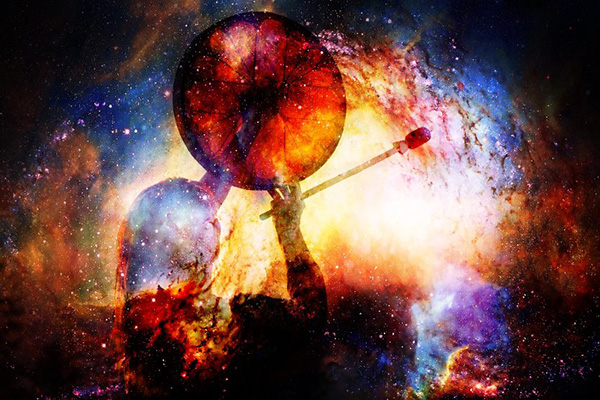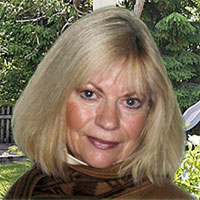The Good Old Days Of Tribal Service
 Someone once asked me the question: why do you do what you do? Most psychics might say that they do it because they love helping people. I gave it careful some thought and realized my answer would be the same, but under different terms. That isn’t to say that I don’t love helping others, but there would be different boundaries, if I was free to choose.
Someone once asked me the question: why do you do what you do? Most psychics might say that they do it because they love helping people. I gave it careful some thought and realized my answer would be the same, but under different terms. That isn’t to say that I don’t love helping others, but there would be different boundaries, if I was free to choose.
I work in the New Age ways, as well as in the indigenous traditions, and I pride myself on the knowledge I have gained in order to truly blend the East with the West. If I had a choice, I would work in the indigenous tradition of my ancestors, especially regarding how one is remunerated for your service.
In the indigenous way, each village had a spiritual person that they called by various names, including Medicine Man, Shaman, Healer, Guru, Oracle, Soothsayer. It was the way in those cultures to take care of the spiritual leaders of the tribe, in terms of their material needs. They shared equally whatever they had with their spiritual leader.
As a result, the spiritual leader didn’t have to focus any of his time on meeting his material needs, such as keeping a roof over his head, or thinking in terms of where his next meal would come from. Instead, he could devote all of his time and energy to spiritual matters.
His payment for his gifts didn’t include whatever the tribe used for money or barter, or if it did, it was not thought of in the same context. In other words, anyone in his tribe could come to him at anytime, with any kind of spiritual issue, and he could address it however he deemed necessary, according to his own sense of direction and spirit guidance. He didn’t have to consider time, energy, and money. He didn’t have to require payment in terms of the time he spent or what was required, because he was so esteemed by his people that they took care of his worldly needs, so he could devote himself to their spiritual needs completely. What a concept! Right?
The shaman is a person who is able to transcend the dimensional confines of cultural existence. They know more than the people they serve ~ Terence McKenna
There was also no such thing as a “rating system” where he would be assessed on factors that had nothing to do with spiritual work. Neither did he have to discontinue his work because a recording or times announced that his work was ending in one minute whether his job was complete, or not. He was revered and respected for what he contributed to each and every one of his villagers. No one was asking him for impossible feats just to test him. If it was a matter that affected the entire tribe and he needed to take the time, sometimes a week or more, to consult with the spirits, fast from food, go into the forest for a vision quest – whatever it took to lead his people in the most altruistic way for his tribe – he was free to pursue his magic.
One of my most memorable teachers was a Hindu gurugi in Mumbai, India. She was of an indigenous tribe that worked in this way. She was the leader of her people that lived in the hills outside Mumbai, although she lived in a remote suburb. They brought her meals to her, cleaned her house, and there were initiates sitting around the periphery of the room where she worked in her dwelling. They were saying pujas (prayer rituals) silently for petitioners like me.
It was the same room where she met with me. We sat on the floor with our legs crossed, yogi style. After many sessions like this with her, including daily telepathic transmissions that began after our first meeting, I asked her what I could give her for her many gifts of her time and pujas on my behalf. She told me, “I have all that I need, but I would love some sweetmeats (a kind of sweet bread in India), and I would love to be invited to your hotel to visit you on your next trip to India.”
I could not believe it. In one of the poorest and most heavily populated places on our planet, someone was willing to give their spiritual service for sweetmeats only, and as far as wanting to visit me at my hotel… I felt like the one being honored!
One of the marvelous things about community is that it enables us to welcome and help people in a way we couldn’t as individuals. When we pool our strength and share the work and responsibility, we can welcome many people, even those in deep distress ~ Jean Vanier
Obviously, there are places still in the world, including local Native American tribes, that operate in this altruistic shamanic tradition, but they are rare and, generally very remote. Many simply ask for donations, but it is not enough to thrive on, much less to survive. Spirituality, generally, doesn’t have the same value for many that it originally had. Shamanism is no longer what it used to be. For example, I am the Oracle Carrier for my tribe, but the time has long gone since we lived in a closed community, and depended upon compensation in the original indigenous tradition. We do, however, have gift giving ceremonies at Solstice times, honoring Mother Earth, each other, and all our relations.
So, yes, I love my work. In fact, I consider it sacred, and feel a deep sense of gratitude that, in today’s culture, there is still a place for this deep, intense, and very satisfying service to others. However, in a perfect world, I would choose to deal with spiritual matters totally and leave the matter of remuneration to the integrity and traditions of those I serve.
As much as I love my life and work in this time and place, my ancestral soul still remembers the good old days of former lifetimes when I lived in that perfect state of spiritual service to my tribe.
|
|

Leave a Reply